Federal Election 2022: Key battleground seats
Now that the starting gun has been fired on the election campaign, it’s time to turn our attention to the electorates that will decide who leads the nation.
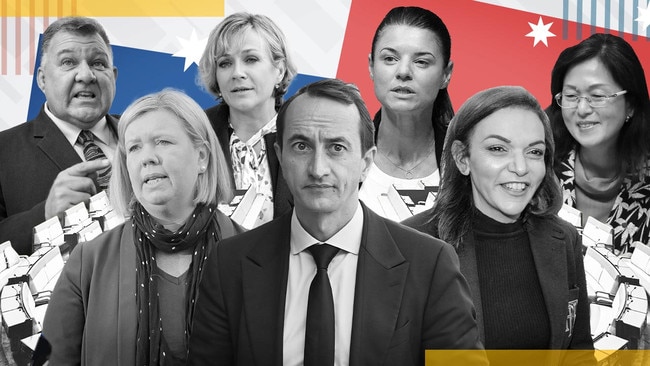
Now that the starting gun has been fired on the 2022 federal election campaign, it’s time to turn our attention to the key seats that will decide who leads the nation. See the battleground electorates, broken down by state, below.
-
NSW
Macquarie
Susan Templeman (ALP)
0.2% margin
The Blue Mountains-based electorate is the No.1 target for the Liberals in NSW after Sarah Richards fell 371 votes short at the 2019 election. Albanese and Morrison have been regular visitors to the swing seat, which has flipped between Labor and the Liberals multiple times since the 1970s. The federation seat, which includes the flood-prone areas of Windsor, Richmond and districts of the Hawkesbury, is a must-hold for Labor and must-win for the Coalition to help balance expected losses elsewhere in NSW.
Reid
Fiona Martin (Lib)
3.2% margin
Reid, the most multicultural and religiously diverse electorate in NSW, was a Labor stronghold until Craig Laundy won it for the Liberals in 2013. Albanese is desperate to win back the seat of his “father figure” mentor Tom Uren. Labor had pencilled in Reid as a gain at the 2019 election after Laundy quit politics but was comfortably beaten by Martin. Martin, who played a prominent role in killing Morrison’s religious freedoms Bill after crossing the floor of parliament with four other moderate Liberal MPs, faces a tough fight to hold on. With a high number of Chinese-Australians in the electorate, Labor has nominated Sally Sitou as their candidate. Sitou is the daughter of Chinese parents who fled Laos after the Vietnam War. Morrison and Albanese are frequent visitors to the battleground seat and will ramp-up their presence during the campaign.
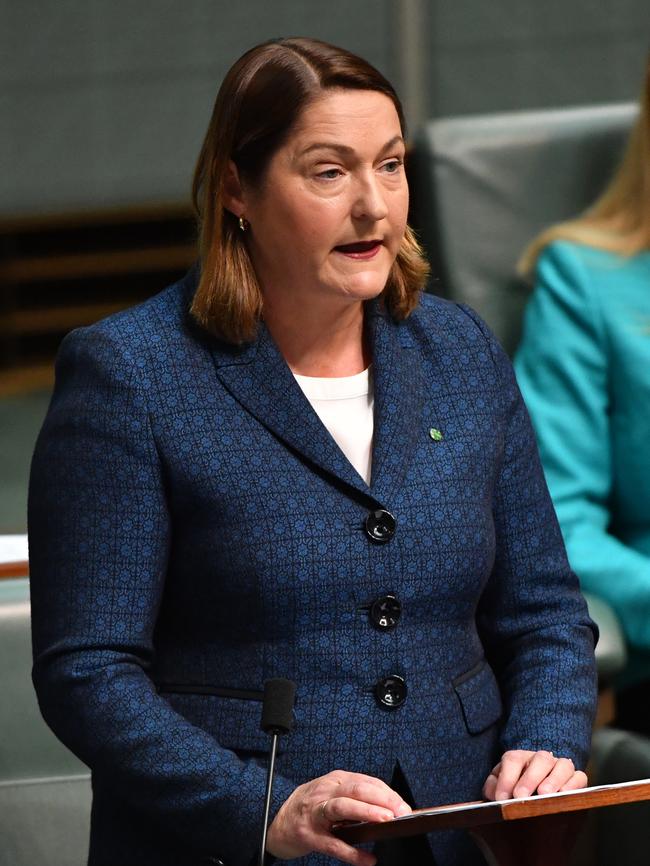
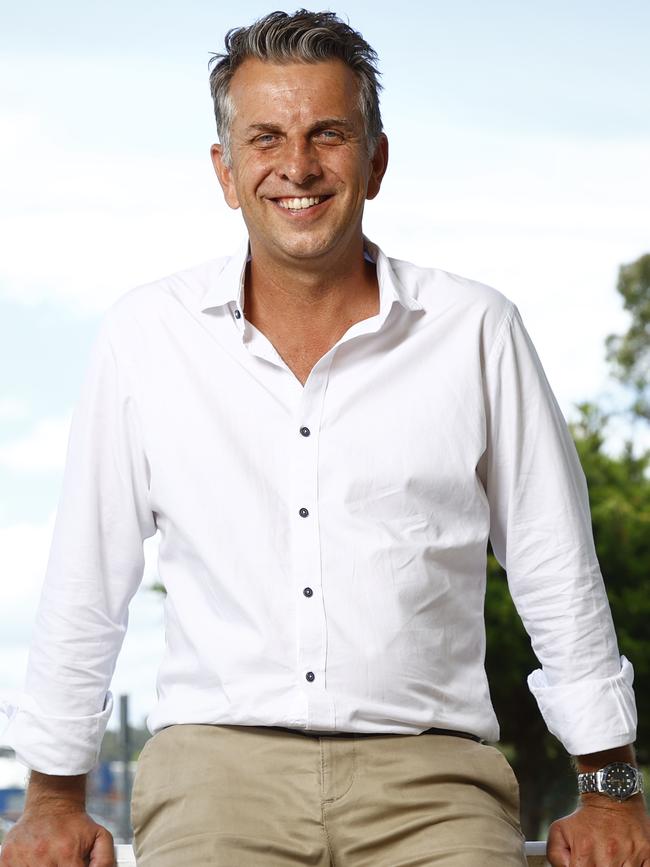
Gilmore
Fiona Phillips (ALP)
2.6% margin
The battle for Gilmore pits Phillips against Liberal star candidate and former NSW treasurer Andrew Constance. Morrison has been focused on winning back Gilmore after another high-profile candidate Warren Mundine, a former ALP national president, was easily defeated by Phillips in 2019. The southern NSW seat, held by the Nationals’ John Sharp for a decade, was in Liberal hands between 1996 and 2019. Gilmore voters remain focused on the federal government’s handling of the bushfire recovery. Constance, the Bega state MP between 2003 and December 2021, was a prominent figure during the bushfires and Liberal HQ hopes he can take the sting out of Labor attacks.
Dobell
Emma McBride (ALP)
1.5% margin
The central coast seat has seen a dramatic shift in demographics over the past decade, with a mix of retirees and young families. During the pandemic, more Sydneysiders shifted north to escape the city. The Liberals believe they can turn the Central Coast into a conservative heartland. In recent elections, Dobell has flipped between the major parties. Following the Craig Thomson scandal, the Liberals won Dobell in 2013 but failed to hold it in 2016. Coalition hopes have been dimmed by infighting in the NSW Liberals. Renowned Sydney cardiologist Michael Feneley, who recently moved into the seat, was parachuted in by Morrison weeks out from the election.
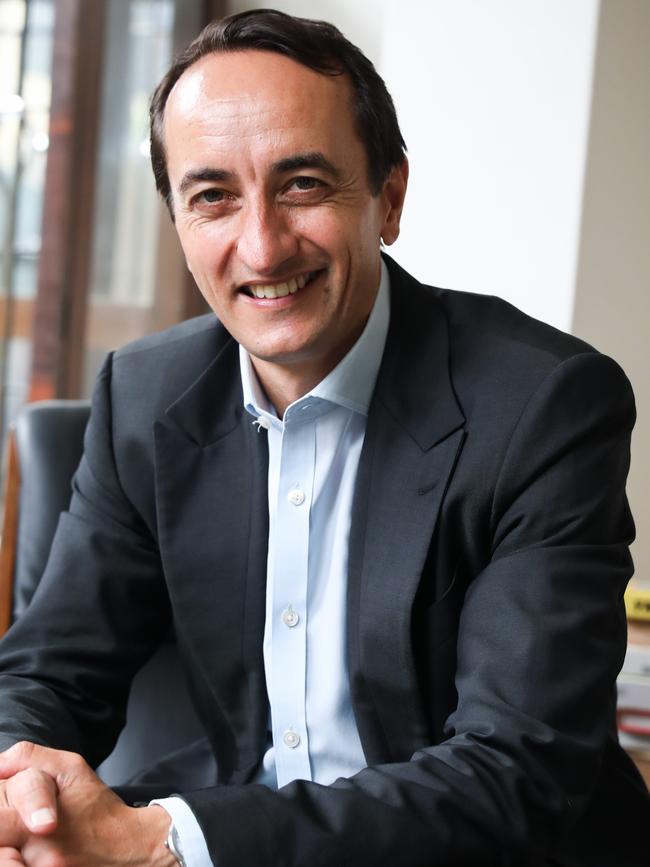
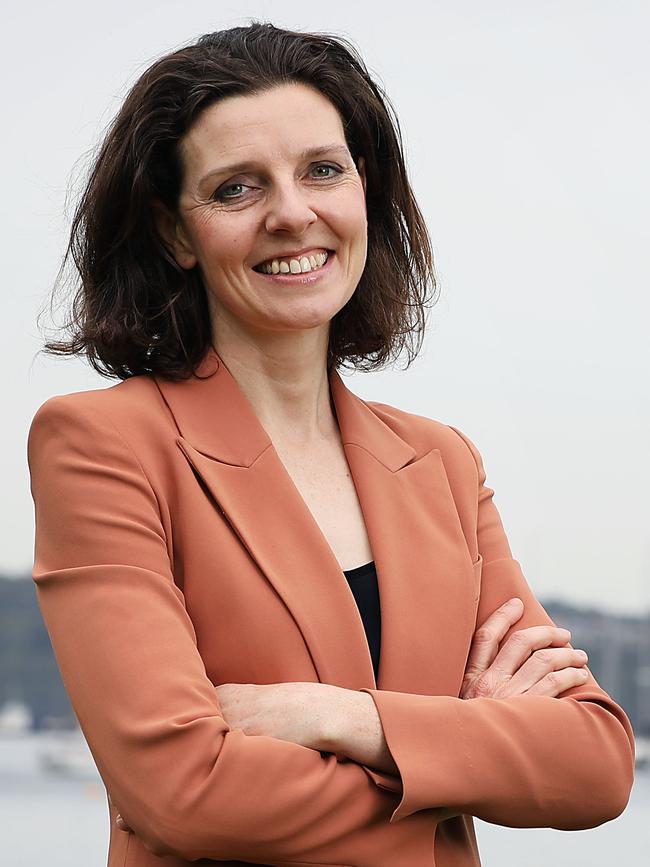
Wentworth
Dave Sharma (Lib)
1.3% margin vs Ind
The federation seat in Sydney’s eastern suburbs, taking in Bondi, Darling Point, Rose Bay, Paddington and Vaucluse, will be a major election battleground for the Liberal Party as it seeks to fend off Voices of Independent candidate Allegra Spender and the cashed-up Climate 200 group. Despite the affluent seat, previously held by Malcolm Turnbull and John Hewson, being dominated by the Liberals for decades, Coalition strategists have grave concerns about Sharma’s prospects. The former Australian ambassador to Israel and respected diplomat has been a strong performer since winning the seat from high-profile independent Kerryn Phelps by 2346 votes in 2019. Spender, daughter of the late fashion designer Carla Zampatti, is running hard on climate change and is considered a strong chance of repeating Zali Steggall’s success in Warringah. Sharma is receiving considerable resources from Liberal Party HQ to do what it takes to hold the seat.
Hughes
Craig Kelly (UAP)
Margin: n/a (won seat as Liberal)
After falling out with Morrison over his anti-vaccination rhetoric and disinformation campaigns on social media, Kelly quit the Liberal Party in early 2021 to move to the crossbench and later joined Clive Palmer as leader of the United Australia Party. Palmer will spend big, flooding the electorate with Kelly billboards and anti-Liberal ads. Ironically, the maverick MP was saved from preselection battles by Malcolm Turnbull and Scott Morrison ahead of the 2016 and 2019 elections. NSW Liberals infighting over preselection contests delayed the endorsement of a Hughes candidate. After Danna Vale wrestled Hughes back from Labor in 1996, the Liberals have held it for 26 years. They expect the party’s high primary vote will help win the seat back.
North Sydney
Trent Zimmerman (Lib)
9.3% margin
The previously safe Liberal seat will be pushed to the brink by Climate 200 independent candidate Kylea Tink. After the Liberals suffered a 19 per cent by-election swing in Gladys Berejiklian’s former seat of Willoughby, Coalition strategists fear that Zimmerman will struggle to hold on. Zimmerman, who replaced Joe Hockey after winning a 2015 by-election, is also being targeted by religious groups unhappy about his role in scuttling Scott Morrison’s religious freedoms legislation. The electorate, which includes the Hunters Hill and Lane Cove councils and was previously held by former prime minister Billy Hughes, was won by independent Ted Mack at the 1990 election. Mack ousted former Liberal frontbencher John Spender, father of Climate 200 Wentworth candidate Allegra, and held the seat until his retirement in 1996.
Mackellar
Jason Falinski (Lib)
13.2% margin
Climate 200 has poured significant resources into the traditionally safe Liberal seat in Sydney’s Northern Beaches. Climate 200 candidate Sophie Scamps, a former Mona Vale Hospital emergency department doctor and GP in Narrabeen, is receiving considerable backing from GetUp and other green groups in Mackellar. Falinski, who replaced Bronwyn Bishop in Mackellar at the 2016 election, has advocated for stronger action on climate change inside the Coalition party room. Liberal strategists are bracing for a significant shaving of Falinski's 13.2 per cent margin on May 21.
Lindsay
Melissa McIntosh (Lib)
5% margin
The Penrith-based seat in western Sydney is always hotly contested and has traditionally landed with the party that wins government. When John Howard rose to power in 1996, Jackie Kelly won it from Labor. David Bradbury claimed victory in the 2007 Rudd-slide and Fiona Scott won it back when Tony Abbott stormed home in 2013. Following the retirement of Labor MP Emma Husar ahead of the 2019 election, McIntosh defeated Diane Beamer by almost 10,000 votes. While Lindsay voters swung hard to Morrison at the last election, they can just as quickly swing back to Labor. The Liberals will sandbag the seat, knowing they need to retain support from western Sydney battlers and tradies to beat Labor.
Page
Kevin Hogan (Nat)
9.4% margin
While the Nationals increased their margin in the northern NSW seat at the 2019 election, towns in the Lismore-based seat have trended towards the Greens and Labor at state and local elections. Hogan was a key player in the Nationals agreeing to support the net zero emissions by 2050 plan, cognisant of the need to promote his climate credentials. The floods disaster, which has devastated Lismore and other towns in the electorate, will sharpen voters’ minds on climate change. Any mishaps in supporting reconstruction in the region will result in election-losing swings against Hogan. Labor’s Janelle Saffin held the seat during the Rudd-Gillard years.
Paterson | Shortland | Hunter
Meryl Swanson (ALP)
Pat Conroy (ALP)
Joel Fitzgibbon (ALP, retiring)
5% | 4.4% | 3% margin
After Labor copped swings in its three Hunter Valley electorates at the 2019 election, Morrison shifted significant resources into winning the coalmining seats. The Prime Minister has made multiple visits to the Hunter and targeted major announcements, including the Kurri Kurri gas-fired power plant, in the region to boost the Coalition’s credentials in the traditional ALP seats. The retirement of Labor stalwart Fitzgibbon, who came close to losing Hunter after ALP voters shifted to One Nation candidate Stuart Bonds, comes after he successfully secured a middle-ground position from Albanese on the party’s climate change and energy platform. Labor strategists are increasingly confident they will hold all three seats after dialling down Bill Shorten’s anti-mining rhetoric.
Warringah
Zali Steggall (Ind)
7.2% margin vs Lib
Tony Abbott’s 2019 election defeat in Warringah, the Manly-based seat he had held since 1994, sent shockwaves through NSW Liberals conservative ranks. While Abbott was on the nose with voters, after playing a prominent role tearing down Malcolm Turnbull, the scale of Steggall’s victory was larger than many thought possible. Running on a climate change agenda, and backed by Simon Holmes a Court, the former Winter Olympics medallist claimed more than 40,000 primary votes and beat Abbott after preferences by 13,333 votes. The NSW Liberals failure to install a high-profile candidate early in Warringah, following failed attempts by Morrison to woo Mike Baird and Gladys Berejiklian, plays into Steggall’s hands.
Eden-Monaro
Kristy McBain (ALP)
0.8% margin
Once known as Australia’s bellwether seat for predicting the winning party, Labor has now successfully bucked the tradition at the past two elections. McBain, who claimed the seat at a 2020 by-election following the retirement of popular Labor MP Mike Kelly, has built up strong local backing since entering parliament. The former Bega Valley Shire mayor has led Labor’s attacks on the Coalition over its handling of the bushfire recovery. Labor HQ pumped big money into holding Eden-Monaro at the by-election and was rewarded with a slim victory, holding-off Liberal candidate Fiona Kotvojs by 735 votes. Preselection chaos delaying the selection of a Liberal candidate has given Labor the edge in Eden-Monaro.
Robertson
Lucy Wicks (Lib)
4.2% margin
The Central Coast-based seat, held by Wicks since 2013, is a traditional battleground electorate which has flipped between the major parties since the 1940s. It holds the claim of bellwether seat, voting in the party that won the election since 1984. The Liberals won it in 1996 when John Howard stormed to victory before Labor reclaimed it under Kevin Rudd in 2007. The federation seat, which includes Gosford, Woy Woy and Terrigal, swung to the Liberals in 2019 and was comfortably held by Wicks. Labor is running local emergency department doctor Gordon Reid in its bid to turn the Central Coast red.
Banks
David Coleman (Lib)
6.3% margin
The southern Sydney electorate was held by Labor from its formation in 1949 until Coleman won it for the Liberals at the 2013 election. At the 2019 election, Coleman increased his margin in the former Labor stronghold, which takes in Revesby, Hurstville, Mortdale, Panania and parts of Bankstown, on the back of a 7 per cent swing to the government. Zhi Soon, a former Australian diplomat who migrated to Australia from Malaysia, is the Labor candidate. With a strong Chinese-Australian population, Banks voters were influenced by disparaging comments made by former NSW Labor leader Michael Daley about Asian people ahead of the March 2019 state election.
Parramatta
Julie Owens (ALP, retiring)
3.5% margin
Andrew Charlton, a managing director at Accenture and former economic adviser to Kevin Rudd, was a late captain’s pick parachuted into the key Sydney seat held by Owens since 2004. Owens, who won the seat from Liberal Ross Cameron, suffered a swing against her at the 2019 election. Charlton, a well-respected economist and leading candidate for fast-tracking into the ministry, lives outside the electorate and his preselection angered local Labor branches. Liberal HQ had been eyeing off the seat before preselection chaos delayed the selection of a candidate.
-
VICTORIA
Chisholm
Gladys Liu (Lib)
0.2% margin
Winning the eastern Melbourne seat of Chisholm by 1090 votes secured majority government for Morrison at the 2019 election. Albanese must win the multicultural, diverse electorate, and support from its big Chinese-Australian population, to help avoid minority government. Similar to the last election, Morrison and Albanese will be frequent visitors to the swing seat, which includes Box Hill, Burwood and Glen Waverley. The Liberals have largely hidden gaffe-prone Liu since her surprise victory but will rely heavily on her links with the Chinese-Australian community to claim another tight win. Morrison’s rhetoric on China is considered by some as a liability in Chisholm.
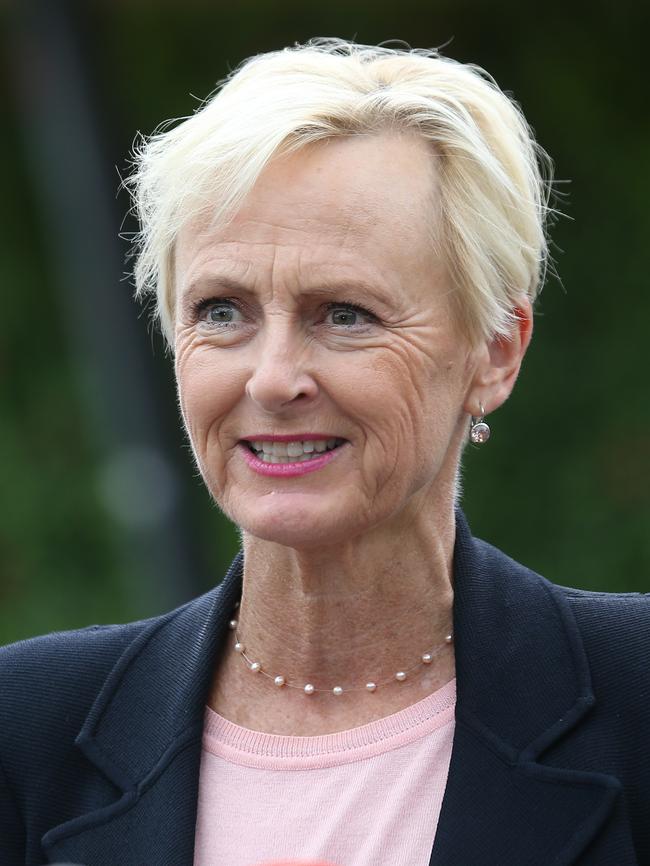
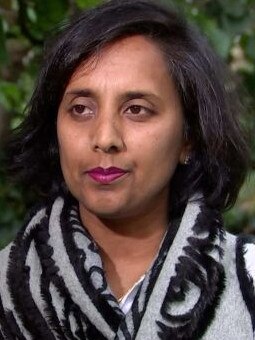
Higgins
Katie Allen (Lib)
3.7% margin
The combined forces of Labor, the Greens and Climate 200 will heap pressure on Allen in the inner-Melbourne seat of Higgins, previously held by Peter Costello, John Gorton and Harold Holt. Liberal support in the blue-ribbon seat has been on a downward spiral at recent elections and the redistribution of Victorian seats has also trimmed Allen’s slim margin. It is a must-win for the Liberals and would be a surprise gain for Labor if it keeps ahead of the Greens. Labor candidate Michelle Ananda-Rajah was attacked by Coalition MPs over her criticism of the AstraZeneca vaccine.
Corangamite
Libby Coker (ALP)
1.1% margin
The Coalition is confident of reclaiming the Geelong-based electorate after Sarah Henderson lost it by 2170 votes to Labor’s Coker in 2019. The Victorian redistribution has had no material impact on Labor’s slim margin in the federation seat. Morrison and Albanese have made several visits to the swing seat this year, with more to come during the campaign. After Henderson shifted into the Senate, Geelong Mayor Stephanie Asher will run as the Liberal candidate.
Kooyong
Josh Frydenberg (Lib)
6.4% margin
Liberal Party dominance in the blue-ribbon federation seat, held by former leaders Robert Menzies and Andrew Peacock, has eroded at recent elections as support shifts to the Greens and climate candidates. Voters in affluent suburbs around Kew, which has median house prices of more than $2.55m, swung against Frydenberg at the 2019 election. With Climate 200 backing Voices of Independent candidate, Monique Ryan, and the Greens ramping up their focus on Kooyong, Frydenberg will be forced to fight hard while selling the government’s economic pitch. The Treasurer, who carried almost 50 per cent of the primary vote at the last election, has a big enough advantage to keep his nose in front but swings are expected and Liberal HQ is throwing considerable resources into the seat.
Dunkley
Peta Murphy (ALP)
2.7% margin
The Frankston-based electorate in Melbourne’s southern suburbs has changed hands between Labor and the Liberals since its formation in 1984. Murphy ousted Chris Crewther at the 2019 election, ending Liberal dominance in the electorate since Bruce Billson won it back from Labor in 1996. Dunkley and Corangamite have been earmarked as potential gains by the Liberals and will be priority seats alongside Chisholm and Higgins.
Macnamara
Josh Burns (ALP)
4.9% margin
The redistribution of Melbourne seats has further narrowed Labor’s lead in the inner-city electorate, which is under threat from the Greens. Macnamara, formerly Melbourne Ports, has been held by Labor since 1906. Capturing Port Melbourne, St Kilda, South Yarra and Middle Park, the Greens believe changing demographics in the electorate will eventually shift the electorate into its ledger, following the same path as Adam Bandt’s seat of Melbourne. Albanese has been a frequent visitor to Macnamara since the 2019 election. Labor strategists are confident they have an adequate buffer to fend off the Greens.
La Trobe
Jason Wood (Lib)
5.5% margin
Labor tried and failed to unseat Wood, a former police officer, at the 2019 election. Wood, who is regarded by both sides of politics as a strong local MP, increased his vote at the last election and is confident of withstanding swings against the government in Victoria. After winning the seat at the 2004 election, Wood lost to Labor’s Laura Smyth in 2010 before reclaiming La Trobe three-years later. The southeast Melbourne seat has picked up more rural areas past Pakenham, which boosts Wood’s margin.
Flinders
Greg Hunt (Lib, retiring)
5.6% margin
The departure of Hunt, who has held Flinders since 2001, is a major blow for the Liberals. The federation seat, which captures Mornington Peninsula, Hastings and Portsea, has traditionally been held by conservative MPs but will come under pressure from the Climate 200 group, which is backing independent candidate Despi O’Connor. Former Liberal MP Julia Banks, who quit the party ahead of the last election, won a big chunk of vote from Hunt in 2019. The Liberals are running Zoe McKenzie, a Sorrento local and environmentalist, in the southern Victorian seat.
Deakin
Michael Sukkar (Lib)
4.7% margin
Sukkar, a Victorian Liberal conservative powerbroker, has maintained his margin at three consecutive elections despite efforts by Labor to unseat him. The Lebanese-Australian Assistant Treasurer and Housing Minister has a buffer to contain swings against the government in Melbourne seats. While Deakin, which was held by Labor’s Mike Symon between 2007 and 2013, is not one of the ALP’s priority gains they will push for inroads via their candidate Matt Gregg, a lawyer and former teacher.
Casey
Tony Smith (Lib, retiring)
4.6% margin
The retirement of Smith, a former Speaker of the House, has put the eastern Melbourne seat in the crosshairs of Labor despite the Liberals’ historic dominance. Smith, who has held the seat since 2001, suffered a swing against him at the 2019 election but maintained a decent buffer for his replacement, father-of-two Aaron Violi. The Liberal Party is also running a new candidate, former Army captain and Afghanistan veteran Keith Wolahan, in the eastern Melbourne seat of Menzies. In a preselection contest last year, Wolahan defeated former defence minister and father of the parliament Kevin Andrews, who had held the safe Liberal seat since 1991.
Indi
Helen Haines (Ind)
1.4% margin vs Lib
The previously safe Liberal seat has been won by independents since Cathy McGowan claimed victory at the 2013 election. Haines, who won the seat in 2019, has grown her profile after leading the crossbench push for a federal corruption watchdog and championing more ambitious climate change targets. The Liberals and Nationals both ran candidates at the last election, with the Liberals’ Steve Martin falling 2816 votes short after preferences were counted. Haines, a prominent Voices of Independent candidate, is expected to retain the seat on the back of preferences. The northwest Victorian federation seat covers the regional cities of Wodonga, Wangaratta and Benalla.
Goldstein
Tim Wilson (Lib)
7.8% margin
The Liberal Party has dominated the inner-Melbourne seat, which takes in Caulfield South, Brighton and Sandringham, since its establishment in 1984. But Coalition strategists are increasingly concerned that the cashed-up Climate 200 campaign backing former ABC journalist Zoe Daniel will eat heavily into Wilson’s margin. Similar to other Liberal-held metropolitan seats targeted by Climate 200, preference flows from Labor and the Greens will play a significant hand in deciding the result. Along with Kooyong and Higgins, the Coalition is pouring resources into the electorate, previously held by longtime Liberal ministers David Kemp and Andrew Robb.
McEwen
Rob Mitchell (ALP)
5.3% margin
Coalition headquarters is pouring resources into the Labor-held seat of McEwen, which is located north of Melbourne and takes in the semi-rural areas of Gisborne, Macedon, Whittlesea and Wallan. With Scott Morrison expecting Labor to pick-up seats across the country, McEwen has emerged as a top Liberal target in Victoria to offset losses. The seat has traditionally flipped between Labor and the Liberals, and was held by former Howard government minister Fran Bailey between 1990-93 and 1996-2010. Preference flows from One Nation and United Australia Party will be crucial to get Liberal candidate Richard Welch into a winning position. Morrison, Frydenberg and other senior ministers have made multiple visits to McEwen during the campaign.
-
QUEENSLAND
Longman
Terry Young (LNP-Lib)
3.3% margin
LNP and ALP strategists have designated the South East Queensland electorate a must-hold and must-win seat. Covering working-class suburbs around Caboolture and the retirement haven of Bribie Island, Longman has changed hands four times since the 2007 election. Morrison and Albanese will spend considerable time in Longman during the campaign. Expect Morrison to replicate his 2019 strategy, which focused on micro-announcements for community groups and infrastructure. Longman is a priority pick-up for Labor in Queensland.
Flynn
Ken O’Dowd (LNP-Nat, retiring)
8.7% margin
Morrison made multiple visits to the Gladstone-based resources electorate during the 2019 election campaign, including in the final days as Shorten slowed down. The central Queensland seat has a strong Labor supporter base at state and council levels. Given Flynn’s economic reliance on LNG exports and coal mining, the LNP and Labor will focus on who is better placed to lock-in jobs under their climate change and energy plans. One Nation claimed almost 20 per cent of the primary vote in Flynn at the last election, including many disaffected Labor supporters. If some of those preferences return to Labor, the Coalition could be in trouble. LNP candidate and state MP Colin Boyce, who has been vocal in his criticism of net-zero emissions by 2050, is up against Gladstone Mayor Matt Burnett.
Leichhardt
Warren Entsch (LNP-Lib)
4.2% margin
The North Queensland electorate was hit hard by the pandemic. The Cairns-based seat relies on its tourism economy, including international visitors and cruise ships. Expect a big focus from Morrison and Albanese on boosting the electorate’s natural wonders – the Great Barrier Reef, Daintree Rainforest and Torres Strait Islands – and supporting indigenous communities across Cape York. Entsch, who was convinced by Morrison to run again at the age of 71, is considered the Coalition’s best chance of holding the seat. Labor has dominated seats overlapping the electorate at successive state elections and held Leichhardt multiple times since its establishment in 1949. The LNP expects swings against it at the election.
Brisbane
Trevor Evans (LNP-Lib)
4.9% margin
Brisbane was traditionally a Labor seat for decades until the LNP wrestled it back from Arch Bevis in 2010. After 12 years of Liberal domination, the Greens are within touching distance of replicating their state election success and moving ahead of Labor. Evans has comfortably held the seat at the last two elections but if a swing is on, Brisbane will come down to the wire. Labor candidate Madonna Jarrett must fend off the Greens to pick it up.
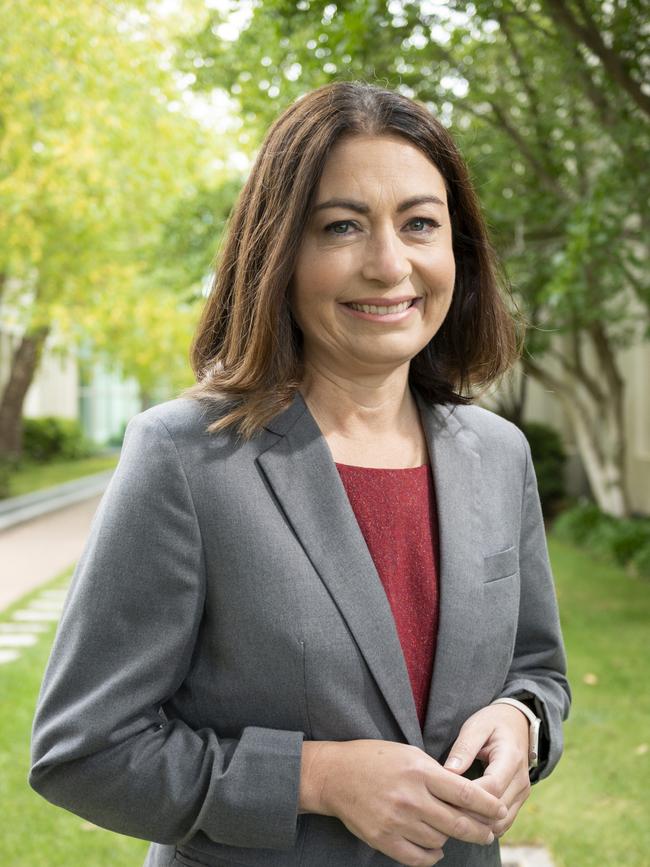
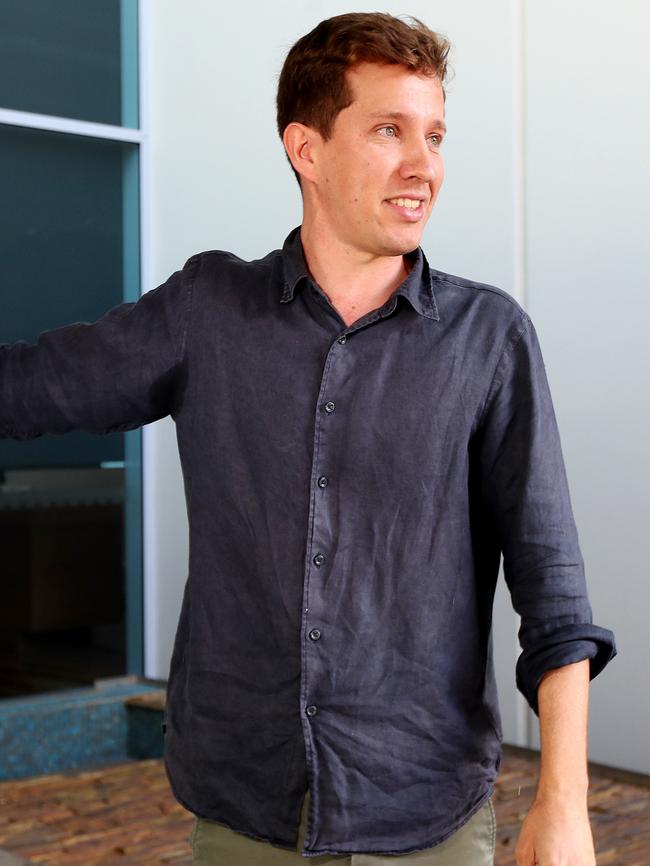
Griffith
Terri Butler (ALP)
2.9% margin
Since the 2019 election, Albanese has returned to the inner-south Brisbane seat, formerly held by Kevin Rudd, on multiple occasions. After years of chipping away at the ALP vote, Greens candidate Max Chandler-Mather has received significant resources from leader Adam Bandt to claim Griffith. With the Greens dominating council and state booths across the electorate, the left-wing party believes it can edge Butler on primary vote and claim the seat. The LNP, which usually wins the primary vote, is comfortably defeated once Labor-Greens preferences flow.
Ryan
Julian Simmonds (LNP-Lib)
6% margin
The previously safe conservative seat, which includes the University of Queensland campus, has become increasingly vulnerable as voters in gentrified suburbs shift to the Greens and Labor. After the Greens won the state seat of Maiwar, encompassing the inner-west suburbs of St Lucia, Indooroopilly, Toowong, Taringa and Auchenflower, Bandt has thrown considerable resources into the seat. Greens strategists are confident if they can’t pick-up Ryan this time around, it will fall to them at future elections.
Herbert
Phillip Thompson (LNP-Lib)
8.4% margin
Based around the garrison city of Townsville in north Queensland, Herbert has traditionally swung between the major parties in tight elections. Following Labor’s soft position on the Adani coal mine and the resources sector, Thompson stole it back for the LNP at the 2019 election. The former soldier has put in the groundwork to hold the seat and also strongly backed the Royal Commission into Veteran’s Suicide. Former RAAF firefighter John Ring is running for Labor.
Forde
Bert van Manen (LNP-Lib)
8.6% margin
The working-class electorate, between Brisbane and the Gold Coast, takes in the lower socio-economic suburbs of Beenleigh, Loganholme and Tanah Merah. The traditional swing seat, which has become a safe Coalition electorate under van Manen, was unsuccessfully targeted by Peter Beattie at the 2013 election. Labor has thrown resources into winning the seat but its only chance is a massive swing.
Blair
Shayne Neumann (ALP)
1.2% margin
On 2019 election night, big swings against Labor frontbencher Shayne Neumann in the working-class electorate of Blair was the first indication of an outer-suburban revolt against Shorten. Neumann suffered an almost 10 per cent swing against him, which was extraordinary given Blair includes the Labor stronghold of Ipswich. It also captures big swathes of regional Queensland to the north. The Coalition hopes it can claim Blair this time around but Labor strategists are not concerned given Neumann’s groundwork in the seat.
Capricornia | Dawson
Michelle Landry (LNP-Nat)
George Christensen (LNP-Nat, retiring)
12.4% | 14.6% margin
While Labor’s focus is on Flynn, the Rockhampton-based electorate of Capricornia and Mackay-based electorate of Dawson remain outside hopes. All three central Queensland seats were won by Kevin Rudd at the 2007 election on the back of swings against the Howard government. Labor deployed resources into both seats at the 2019 election only to suffer swings against it. The departure of Christensen, who is popular in Mackay, could be a factor in Dawson. One Nation, picking off disaffected Labor voters, performed well in both seats and helped inflate the LNP’s victory margins. The LNP is wary of disaffected Labor voters shifting back to the ALP.
Dickson
Peter Dutton (LNP-Lib)
4.6% margin
Labor, the unions and GetUp threw resources into Dickson at the 2019 election to unseat Dutton. Despite the pressure, the LNP hard man increased his margin. Labor is running the same candidate, Ali France, in 2022 and hoping to secure a big enough swing to push out the Defence Minister and Liberal leadership aspirant. The LNP is confident Dickson will be retained.
Lilley
Anika Wells (ALP)
0.6% margin
The northern Brisbane electorate, once held by the city’s first lord mayor William Jolly, takes in the Brisbane airport, Boondall, Nudgee, Aspley and Sandgate. After Wayne Swan retired ahead of the 2019 election, Wells came within 1229 votes of losing the former treasurer’s seat after Labor suffered an 8.12 per cent swing against it. Albanese has made multiple visits to the seat, and despite LNP hopes they could wrestle it off Labor, they are not confident of bridging the gap.
-
WA
Swan
Steve Irons (Lib, retiring)
3.2% margin
Irons retires from the marginal seat he has held since 2007. The riverside inner-city electorate, which takes in Perth airport, Victoria Park, Belmont, Como and South Perth, is being contested by Liberal candidate Kristy McSweeney, a former ministerial media adviser and political commentator, and Labor’s Zaneta Mascarenhas, an engineer. The Liberals are most pessimistic about holding Swan despite the WA redistribution lifting its margin.
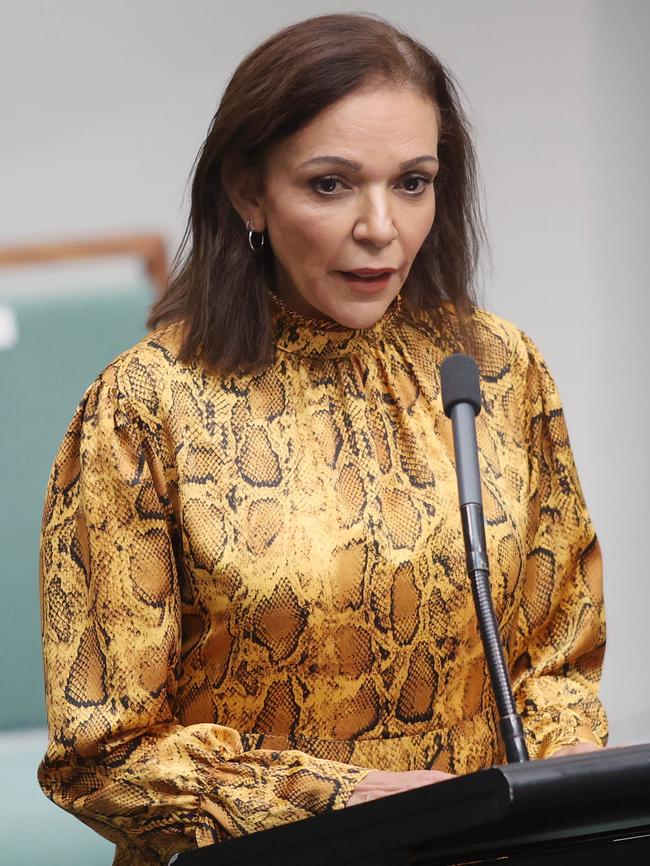
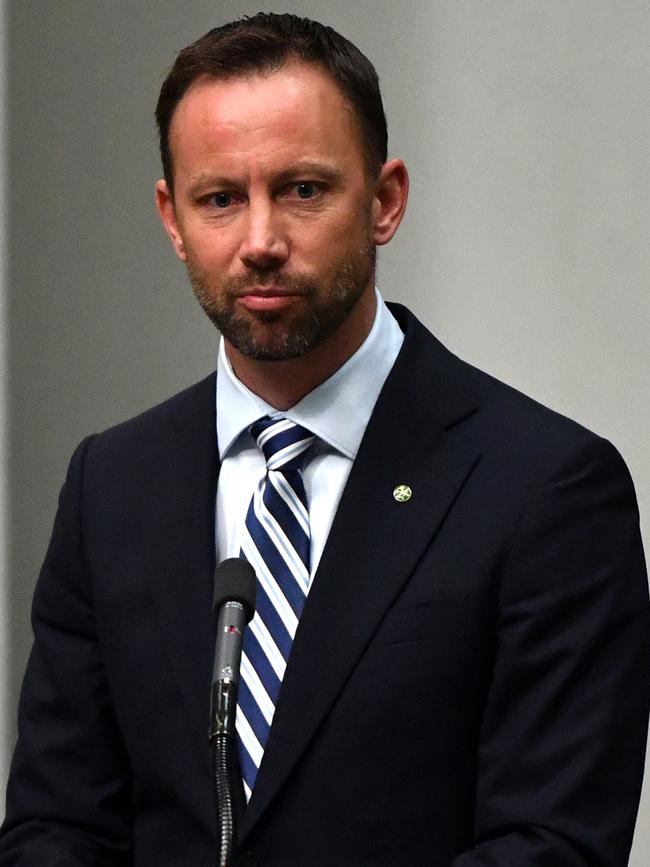
Cowan
Anne Aly (ALP)
0.9% margin
Cowan has flipped between Labor and the Liberals since its formation in 1984. The redistribution of Perth electorates by the AEC has seen it absorb big swathes of the Liberal-held seat of Stirling, which was abolished. Aly, who first won the seat in 2016, clung-on by 1417 votes at the last election after both major parties suffered swings against them. The Liberals offensive strategy is focused on getting behind Stirling MP Vince Connelly, who is running in Cowan after his electorate was abolished.
Pearce
Christian Porter (Lib, retiring)
5.2% margin
Porter’s fall from grace and exit from politics make the redistributed northern Perth electorate tougher for the Liberals to hold. The Coalition expects swings against it after losing solid Liberal territory but are hopeful the 5.2 per cent margin can absorb the backlash. Since its creation in 1989, the Liberals have never lost the seat. Labor has drafted Wanneroo mayor Tracey Roberts to run against the Liberal candidate, Wanneroo councillor and nurse Linda Aitken.
Hasluck
Ken Wyatt (Lib)
5.8% margin
Held by Indigenous Australians Minister Ken Wyatt, Hasluck has shifted under the WA redistribution, pushing it into Perth’s northeast corridor. About 15,000 voters in the south have moved into Burt and Swan, while Hasluck brings in parts of Cowan and Pearce, including 37,000 voters in the upper Swan Valley. The boundary changes slightly improve Wyatt’s margin. Liberals believe Wyatt’s strong name recognition and senior position will help sandbag the Perth seat.
Curtin
Celia Hammond (Lib)
13.9% margin
The number of corflutes for Climate 200 independent Kate Chaney in the wealthy beachside Perth suburbs of Cottesloe, Mosman Park, Claremont and Subiaco outstrips Hammond 3 to 1. Climate 200’s spend and resources on the ground dwarf the Liberal campaign and has sparked concerns that the safe seat, held by Julie Bishop for almost 21 years, could come under threat. Hammond, a former University of Notre Dame vice-chancellor, has a buffer which is likely to help her hang on against Chaney and the strong preference flows from the Greens and Labor. Former Liberal Party deputy leader and Fraser government minister Fred Chaney has publicly endorsed his niece.
-
SA
Boothby
Nicolle Flint (Lib, retiring)
1.4% margin
After more than 70 years of Liberal domination in the southern Adelaide electorate, Labor is edging closer to turning the seat red. Despite securing gains at the 2019 election, Flint was forced to fight off an aggressive and ugly campaign waged by activist group GetUp to win the seat by 3047 votes. The Liberals have put up Rachel Swift, a Rhodes Scholar who worked with the Boston Consulting Group, as Flint’s replacement. Labor’s challenger is Louise Miller-Frost, the local Vinnies chief executive and UnitingCare Wesley Bowden chair. Both sides expect Boothby to be the main battleground seat in South Australia, with Liberal strategists increasingly concerned it will fall.
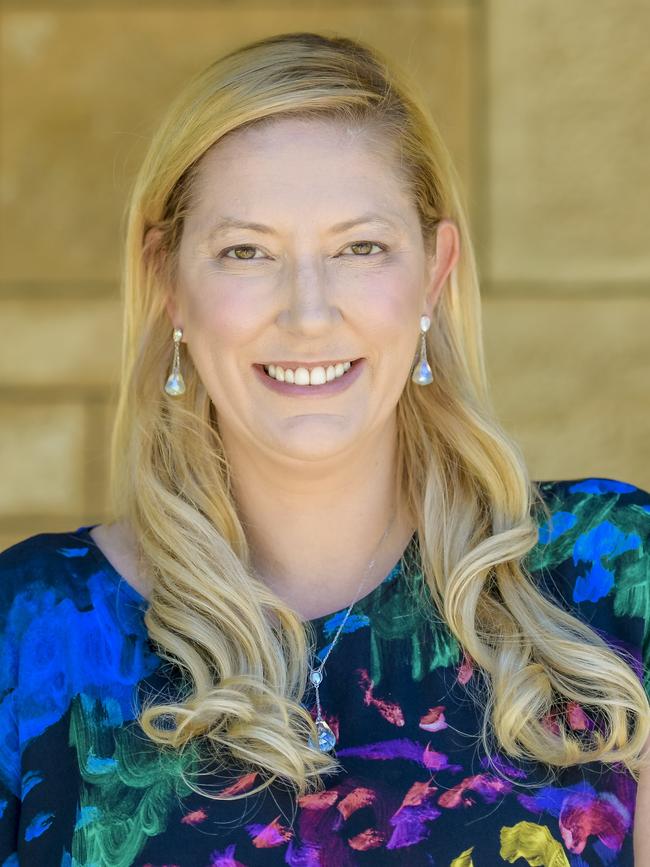
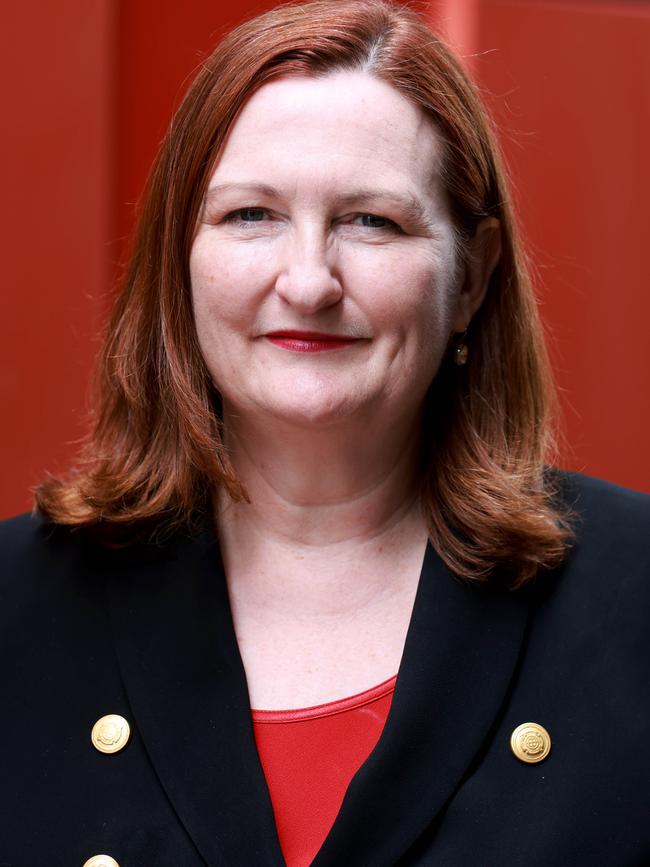
Mayo
Rebekha Sharkie (Centre All.)
5.1% margin vs Lib
The former Liberal Party stronghold, previously held by Alexander Downer and Jamie Briggs, was comfortably retained by Sharkie at the 2019 election despite a high-profile challenge by Georgina Downer. While the Liberals would love to have Mayo back in its ledger, Sharkie is expected to hold the seat with backing from the cashed-up Climate 200 group.
Sturt
James Stevens (Lib)
6.87% margin
The traditional Liberal Party stronghold, held by Labor for a sole term since 1956, is expected to come under pressure despite Stevens’ healthy margin. Liberal strategists focused on Boothby are shifting their focus to the south-eastern Adelaide seat. Peter Malinauskas’ dominant victory in March shone a light on waning support for the Liberals in Sturt, Boothby and the sprawling regional electorate of Grey. Stevens, a former chief-of-staff to Steven Marshall who replaced long-time Sturt MP Christopher Pyne at the 2019 election and won a 6.2 per cent swing to the Liberals, is preparing for a tight race. If Labor picks-up seats like Sturt, it would put them in a prime position to form majority government.
-
TASMANIA
Bass
Bridget Archer (Lib)
0.4% margin
Archer was the darling of the Liberal Party after helping Morrison win majority government, beating incumbent Labor MP Ross Hart by 563 votes at the 2019 election. Archer’s outspoken positions on establishing a federal corruption watchdog and ensuring protections for LGBTI students and teachers during the religious freedoms debate are viewed as positives at a local level. The northeastern Tasmanian seat, which takes in Launceston, Flinders and Cape Barren Islands, has swung between the Liberals and Labor since its formation in 1903. Morrison and Albanese will spend plenty of time in northern Tasmania, knowing success in the Apple Isle could help secure majority government. Expect plenty of cash to be thrown around.
Braddon
Gavin Pearce (Lib)
3.1% margin
Braddon, like Bass, has yo-yoed between the Liberals and Labor since the 1950s. The ALP, which saw its vote drain to independents and minor parties in 2019, is hoping to add the swing seat to its pile and has pumped resources into its northern Tasmania operations. The electorate, which runs from southern Tasmania to King Island, includes Burnie, Ulverstone and Strahan. Morrison and Albanese have been frequent visitors and will battle until polling day for control of Braddon.
Lyons
Brian Mitchell (ALP)
5.2% margin
Despite Labor holding a reasonable margin in Lyons, Tasmania’s biggest electorate, Coalition strategists are optimistic they can win back the seat they lost to Mitchell in 2016, and add it to the pile of gains used to offset expected losses on the mainland. The Liberals usually poll stronger than Labor in the northern areas of the seat near Launceston and Devonport. The ALP has dominated southern booths, which are closer to Hobart.
-
NT
Solomon
Luke Gosling (ALP)
3.1% margin
The Country Liberals came close to knocking off Gosling at the 2019 election, eventually falling behind by 3396 votes after preferences were counted. Solomon, which captures the Darwin-Palmerston area, has flipped between the ALP and CLP since its formation in 2000. Coalition strategists believe waning support for Labor Chief Minister Michael Gunner will translate into voter gains in Darwin. Morrison has pumped billions of dollars into defence infrastructure in Darwin and the Northern Territory since the last election.
Lingiari
Warren Snowdon (ALP, retiring)
5.5% margin
The loss of veteran MP Snowdon, who has held the enormous Northern Territory electorate since its formation in 2001, could prove problematic for Labor. After securing some gains at the last election with candidate Jacinta Price, the Country Liberals picked Alice Springs mayor Damien Ryan to contest the seat. Labor is running Marion Scrymgour, a former NT MP and acting chief minister.
-
Senate form guide
Queensland
Labor is seeking to avoid a repeat of its 2019 election wipe-out in Queensland, which secured a sole Senate spot and handed the Coalition three Upper House seats. Murray Watt, a left-faction powerbroker, is number one on the ticket ahead of former ALP state secretary and incumbent senator Anthony Chisholm. Labor expects both will be returned.
Internal brawling inside the Coalition saw rising conservative star Amanda Stoker bumped to third spot behind Matt Canavan and James McGrath. If Labor and minor parties capture a bigger chunk of the vote, Stoker will likely be dumped from parliament.
One Nation leader Pauline Hanson, 67, is a near-certainty to be returned. Other minor party candidates, including the Greens’ Penny Allman-Payne, billionaire United Australia Party boss Clive Palmer and former Queensland premier Campbell Newman, running as the lead Liberal Democrats candidate, will fight for the remaining Senate positions.
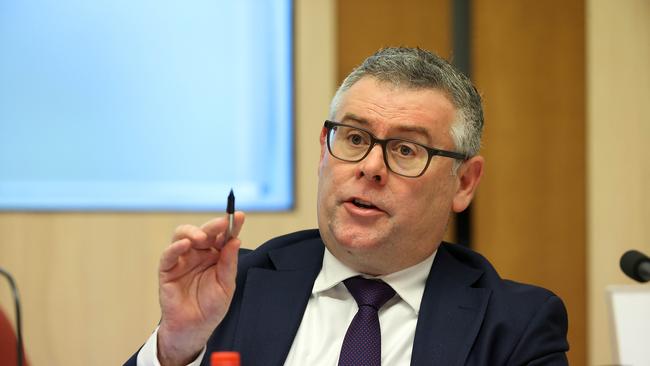
NSW
Labor right-faction powerbroker Deb O’Neill will lead the ALP Senate ticket after a heated contest with former NSW premier Kristina Keneally who will instead contest Fowler in the lower house. Jenny McAllister, a close left-faction ally of Anthony Albanese, will be returned as the second candidate for Labor.
NSW Liberal Senator Marise Payne, who entered the Senate in 1997, leads the Coalition ticket ahead of Nationals candidate Ross Cadell, retired major-general, Senator Jim Molan, and second Nationals pick Alison Penfold. After failing to secure a winnable position, veteran conservative Liberal senator Concetta Fierravanti-Wells attacked Morrison in the Senate.
Greens lead candidate David Shoebridge is confident of winning a Senate spot and shifting from the NSW Parliament, where he has sat in the Upper House since 2010.

South Australia
Labor veterans Penny Wong and Don Farrell lead the ALP ticket. Liberal senators Simon Birmingham and Andrew McLachlan are also likely to be returned.
A key focus in South Australia is the political futures of former Nick Xenophon team members Rex Patrick and Stirling Griff. The outspoken Patrick has pulled out all stops to raise his profile ahead of the election. Both are unlikely to be returned. The Greens are hopeful their candidate Barbara Pocock can help grow their Senate team to 12 after the election.
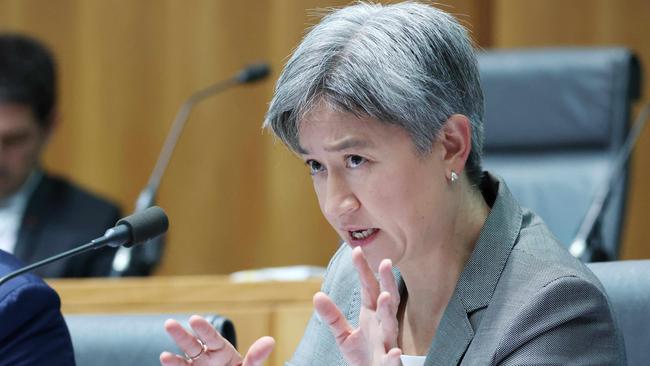
Tasmania
Veteran senator Eric Abetz has fallen to a likely unwinnable third spot on the Liberal Party senate ticket, behind Jonathon Duniam and Wendy Askew. Labor stalwarts Anne Urquhart and Helen Polley top the ALP ticket. Greens senator Peter Whish-Wilson will be easily re-elected as the left-wing party’s lead candidate. Jacqui Lambie’s office manager Tammy Tyrrell is an outside chance of picking up a Senate seat.
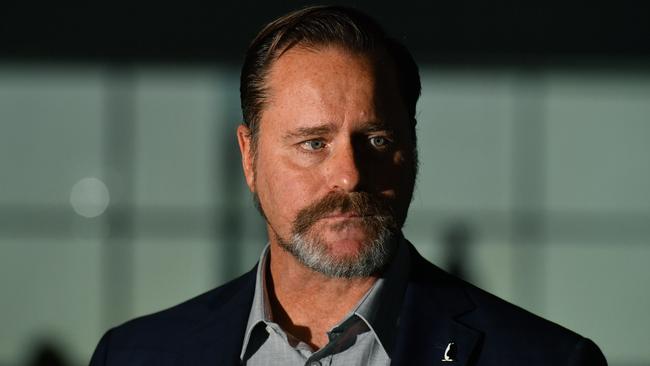
Victoria
Sarah Henderson, who lost the Geelong-based seat of Corangamite at the 2019 election but was later parachuted into the Senate, secured top spot on the Liberal Party ticket ahead of Nationals Cabinet minister Bridget McKenzie and Greg Mirabella, the husband of controversial former Indi MP Sophie Mirabella.
Ugly Victorian ALP internal warring stalled the finalisation of Labor’s senate ticket. Kimberley Kitching’s tragic death and the retirement of veteran senator Kim Carr allowed the Richard Marles led Right-faction and Left-faction to pick their candidates Jana Stewart and Linda White. Albanese’s takeover of the Victorian Labor branch effectively handed the Left-dominated ALP national executive final choice on preselections.
Outspoken Greens senator Lidia Thorpe, who replaced former leader Richard Di Natale under a casual vacancy, leads an all-indigenous Greens senate ticket in Victoria.
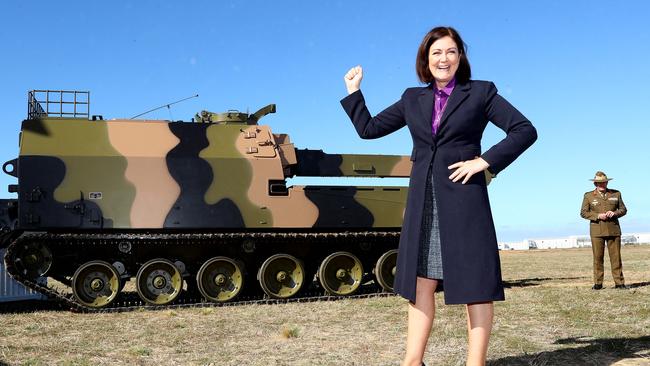
Northern Territory
After winning a messy preselection battle with Sam McMahon, Alice Springs deputy mayor Jacinta Price is expected to enter the parliament after falling short at the 2019 election against Warren Snowdon in Lingiari despite securing a 5 per cent swing. Labor senator Malarndirri McCarthy leads the ALP ticket.
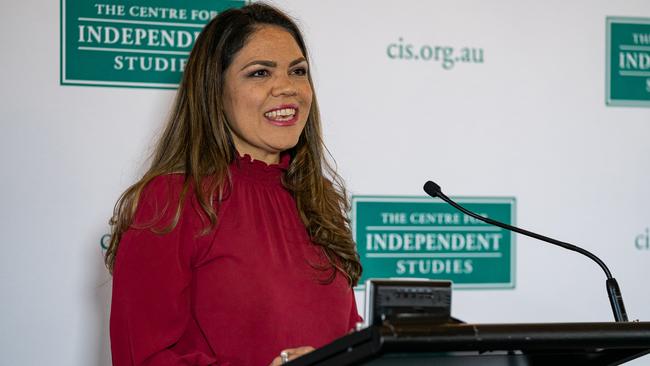
ACT
Celebrity candidates David Pocock, a former Wallabies skipper, and Kim Rubenstein, a prominent ANU academic and constitutional expert, will take on Labor and Liberal incumbents Katy Gallagher and Zed Seselja. The unions and Climate 200 – the cashed-up organisation bankrolling independents across the country – will target Seselja. Climate 200 are backing the campaigns of both Pocock and Rubenstein.
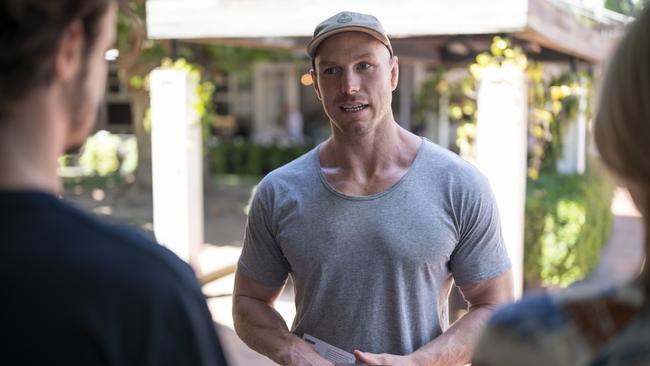
Western Australia
Incumbent Liberal senators Michaelia Cash, Dean Smith and Ben Small will recontest their seats, as will Labor’s Sue Lines and Glenn Sterle. Former One Nation senator Rod Culleton will run for the Senate under his Great Australian Party banner. Dorinda Cox leads the Greens ticket.
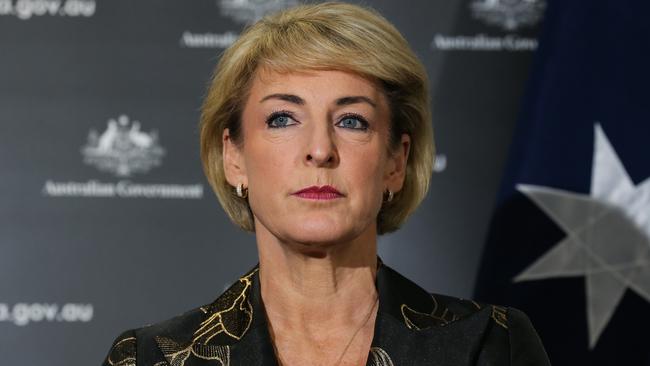


To join the conversation, please log in. Don't have an account? Register
Join the conversation, you are commenting as Logout